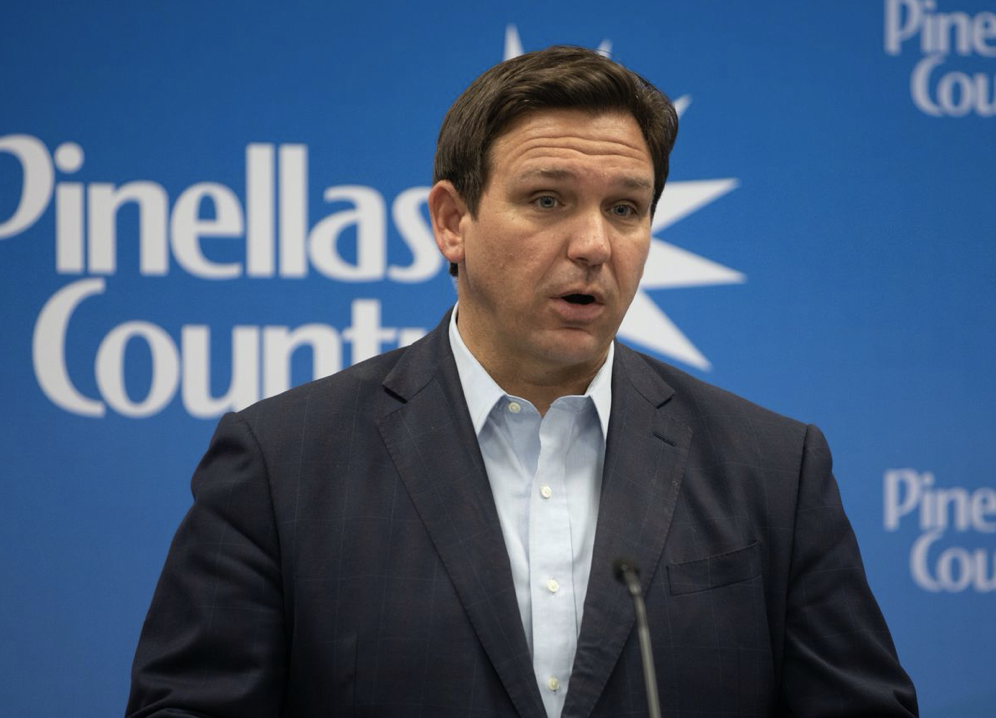By:
Hurricanes and other disasters have reshaped the political landscape before. In 2012 New Jersey Gov. Chris Christie was supposed to be a top Mitt Romney surrogate against President Barack Obama. When Hurricane Sandy hit a week before Election Day, Mr. Christie and his state were overwhelmed and in desperate need of federal resources. That gave Mr. Obama leverage, and Mr. Christie played nice with the president, even giving Mr. Obama a famous “hug”—actually a warm handshake.
The “hug” had political implications in 2012 and beyond. It neutralized Mr. Christie as a surrogate at a key moment in the campaign, while also giving Mr. Obama bipartisan credibility for his successful re-election effort.
For Mr. Christie, the hug was good politics in the short run; he easily won re-election in 2013. But it might have hurt his 2016 presidential campaign. One of his primary opponents, Sen. Rand Paul, trolled Mr. Christie on National Hug Day. Mr. Christie won no delegates. His bigger problem was likely the 2013 “Bridgegate” scandal, but his hurricane behavior did not help.
In 2005 President George W. Bush, fresh off re-election, ran aground in the wake of Hurricane Katrina. The storm caused more than 1,800 deaths and $148 billion in damage and filled screens with images of helplessness and squalor.
President Bush made some missteps, including a flyover of the affected area that he acknowledged was a mistake: “I should have landed.” But Bush allies complained, with some reason, that local officials, particularly Louisiana Gov. Kathleen Blanco and New Orleans Mayor Ray Nagin, both Democrats, were uncooperative on whether to send in federal troops and failed to evacuate Mr. Nagin’s city when they should have.
They each had a comeuppance. She became increasingly unpopular and chose not to run for re-election; he went to prison for corruption. But the damage was done for Mr. Bush. His public standing never recovered during his presidency, and his second-term agenda faltered.
In August 1992 Mr. Bush’s father was tagged for a poor response to Florida’s Hurricane Andrew. Gov. Lawton Chiles was also blamed for the poor response—his approval rating sank to 22%—but Mr. Bush was done in by the televised plea of Dade County’s operations director, “Where in the hell is the cavalry on this one?” President Bush lost re-election in November, but two years later Chiles narrowly won against Bush’s son Jeb.
Jeb Bush served two terms as governor, 1999-2007, and he got high marks for handling a series of hurricanes in 2004 and 2005—including Katrina, which made landfall in South Florida a few days before it devastated New Orleans.
That was an exception. In the rest of these stories, Republicans tended to fare worse than Democrats. Part of this can be ascribed to media bias. As Mr. Romney’s political strategist Stuart Stevens once told me, “When it comes to presidential politics, the media are the umpires and the Republican is always the away team.”
Mr. DeSantis has generally been aggressive in challenging mainstream media narratives. But Ian will require deft handling of Florida’s disaster capabilities and the media if he is going to emerge with his political viability intact. He has also sounded the right notes on cooperation, saying, “It’s my sense that the administration wants to help.”
The risk for Mr. Biden, as he approaches his 80th birthday in November, is that he can appear old and out of touch. To counter that, he will need to make sure that the Federal Emergency Management Administration is on top of its game in responding to the hurricane. He also has to be careful not to appear to be playing politics with federal resources. Snubbing a perceived rival could make Mr. Biden look petty toward Mr. DeSantis and callous toward the people of Florida.
Politicians and pundits often talk about the need for elected officials to work together without really meaning it. But in the case of disasters, cooperation is generally good crisis management and good politics.
To see this article and subscribe to others like it, choose to read more.
Source: Biden, DeSantis and the Politics of Hurricanes – WSJ
 Listen Online
Listen Online Watch Online
Watch Online Find a Station in Your Area
Find a Station in Your Area







 Listen Now
Listen Now Watch Online
Watch Online
